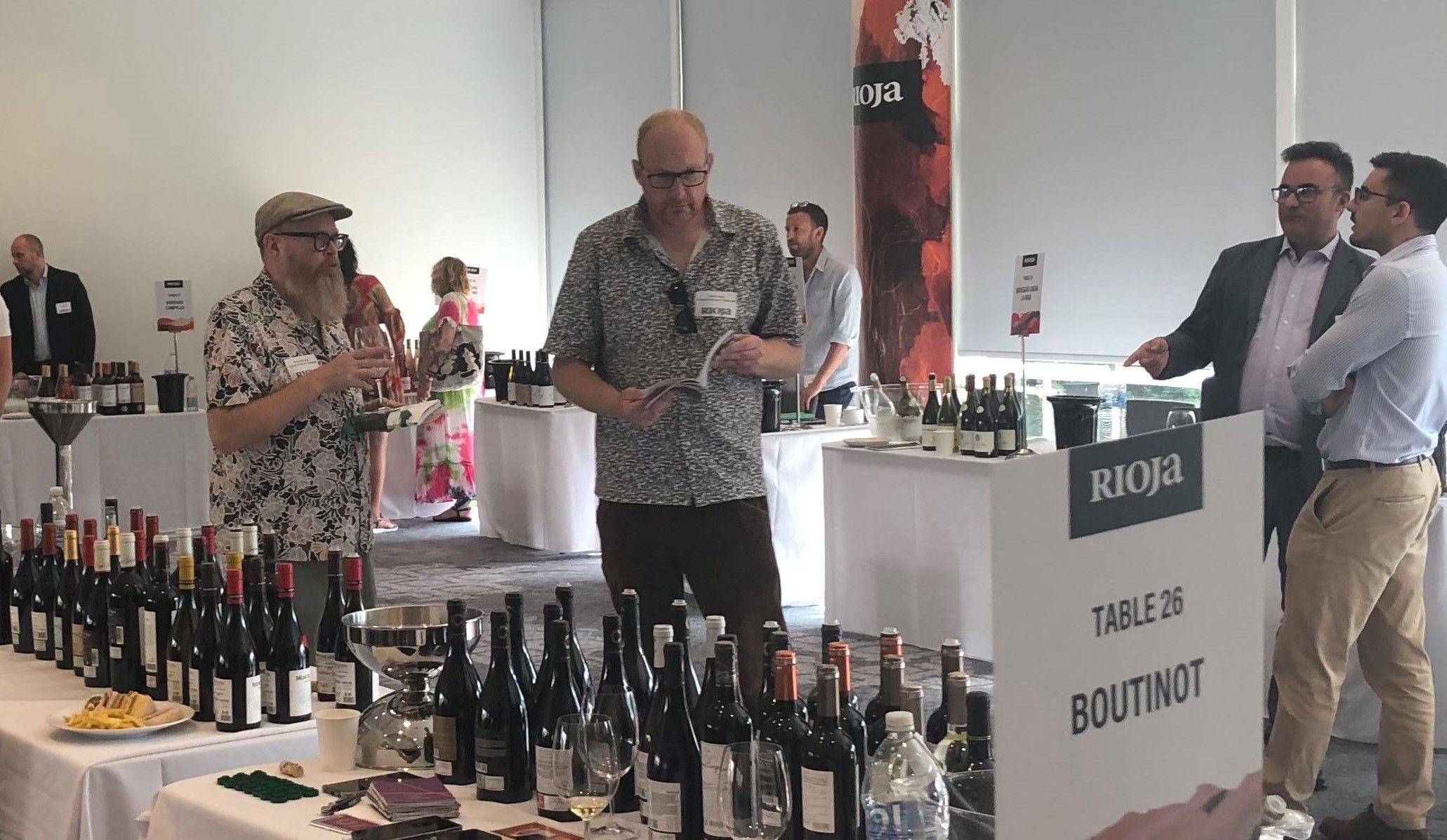“This Rioja 100kms of Diversity event is very much part of the education process needed at all levels and fantastic that it took part in a Northern city,” writes Harrison.
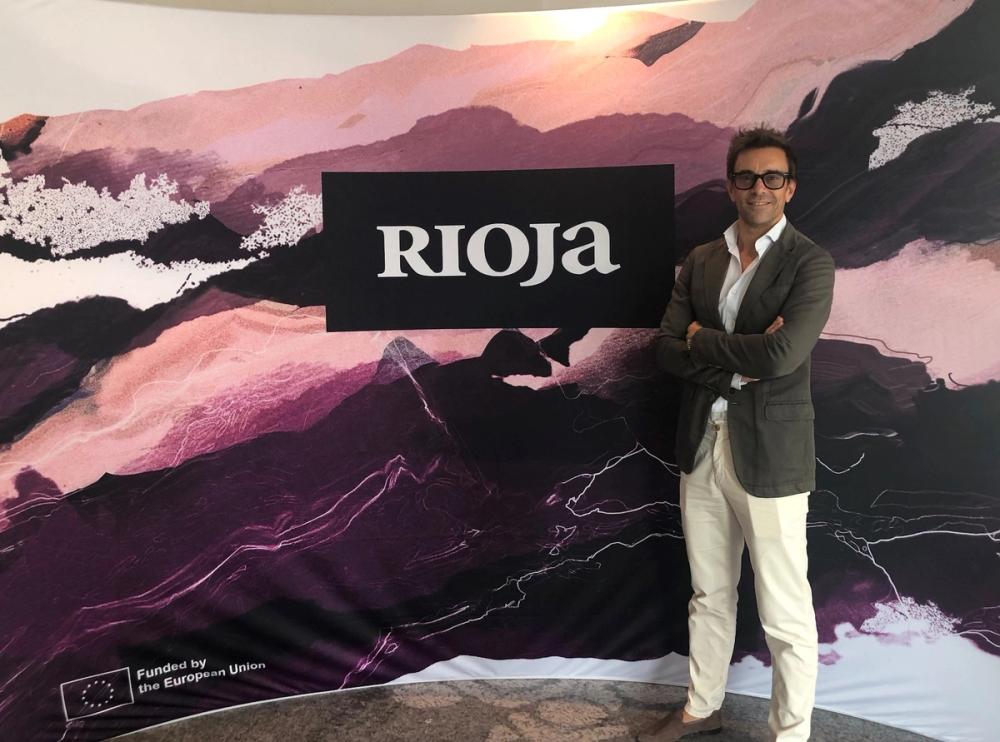
Levelling up makes sense as London is a saturated market: the Consejo’s Iñigo Tapiado Larrañaga
It was a treat to have such a prestigious tasting event close to home. The decision to host the Rioja 100kms of Diversity tasting in Manchester, by Nicky Forrest and the Phipps PR team, reflects the burgeoning and increasingly sophisticated food and drink scene in the city and the North in general. Before visiting I’d read the Rioja series of articles, by Mike Turner in The Buyer, regarding the changes to the classification categories since 2017, which proved to be a useful start point – particularly when talking to producers.
The title ‘100kms of Diversity’ stems from the relatively recent focus on diversity of vineyards, soils and villages – something we have all come to expect from regions like Burgundy for example, but not in this iconic wine area of Rioja. As it stated in the event details the tasting also aimed to “shine a spotlight on Viñedo Singulares” with a selection of those wines on a separate focus table. As Mike’s previous articles explain, this particular classification was incorporated in 2017 as a way to recognise and include wines with special origins.
Now that wineries are free to categorise their wines by sub-zone (Alavesa, Alta and Oriental), wine villages or even a specific vineyard, I was intrigued to hear the views of those attending this event at Manchester’s The Lowry Hotel. I split my time speaking to a range of people, including importers, producers, a wine educator and the Consejo Regulador DOCa Rioja, to gain a better understanding of the challenges and opportunities they might face, during a time of big changes for the Rioja region.
So what were the key messages from producers?
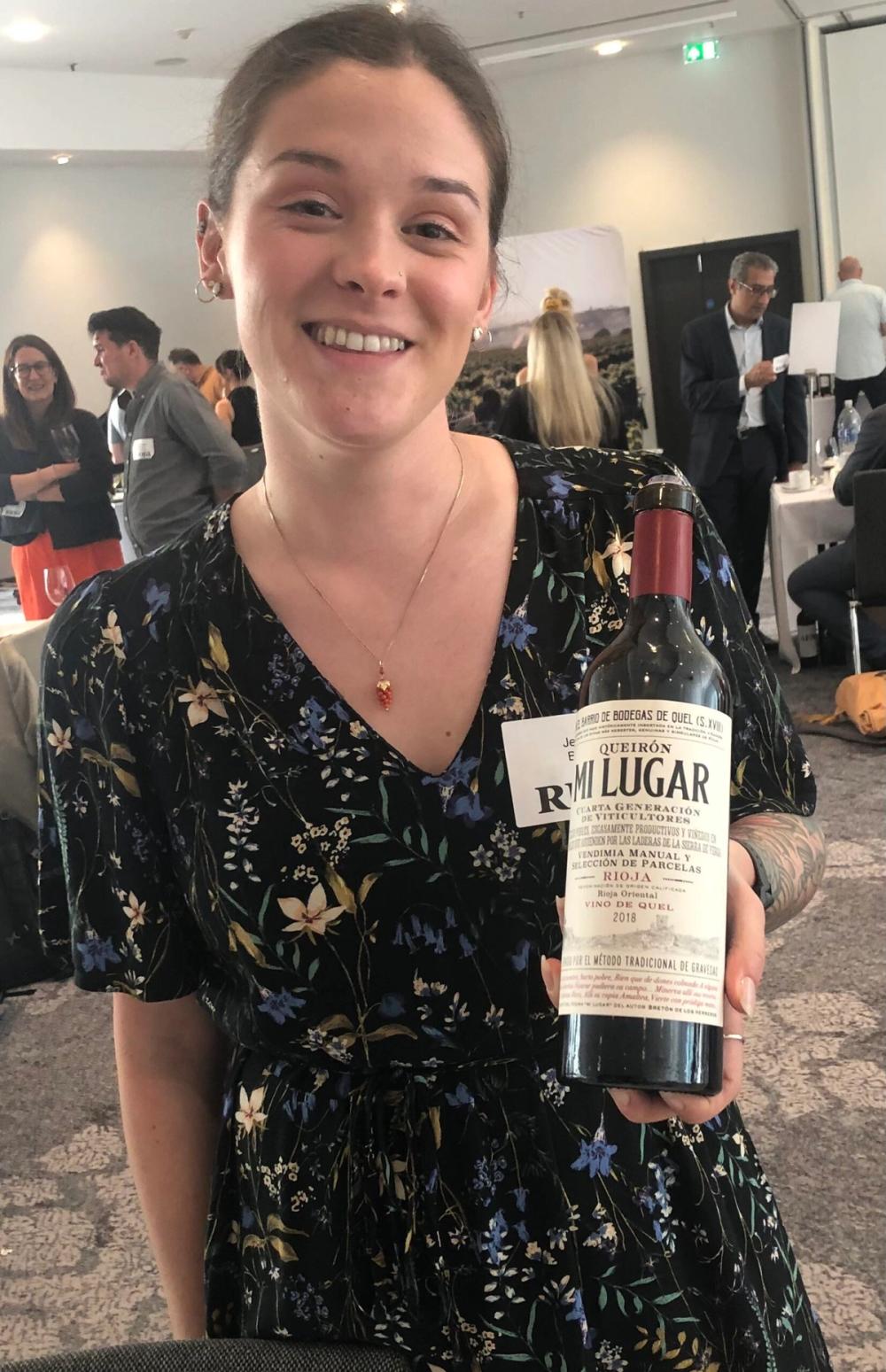
Viñedos Singulares is a new ‘conversation’ to have with the consumer: Boutinot’s Jen Frost
Jen Frost from North-West-based importer Boutinot sees this as “an opportunity and something new to talk to consumers about.” I was specifically asking about how to communicate the message and whether there could be any perceived barriers (to sales). “Well, it still shows Rioja on the label, which is a great start point and an easy way into the conversation.”
From the range of wines showcased, Jen explained that Quierón, was specifically created to highlight its Viñedos Singulares wines. It is part of Bodegas Ontañon (one of the largest family- owned wineries in Rioja) and has a long association with Quel. For them, village classification is key to highlight the wine’s heritage and as a ‘terroir driven’ brand with modern production methods, it is a good fit for the wine team and the overall marketing message.
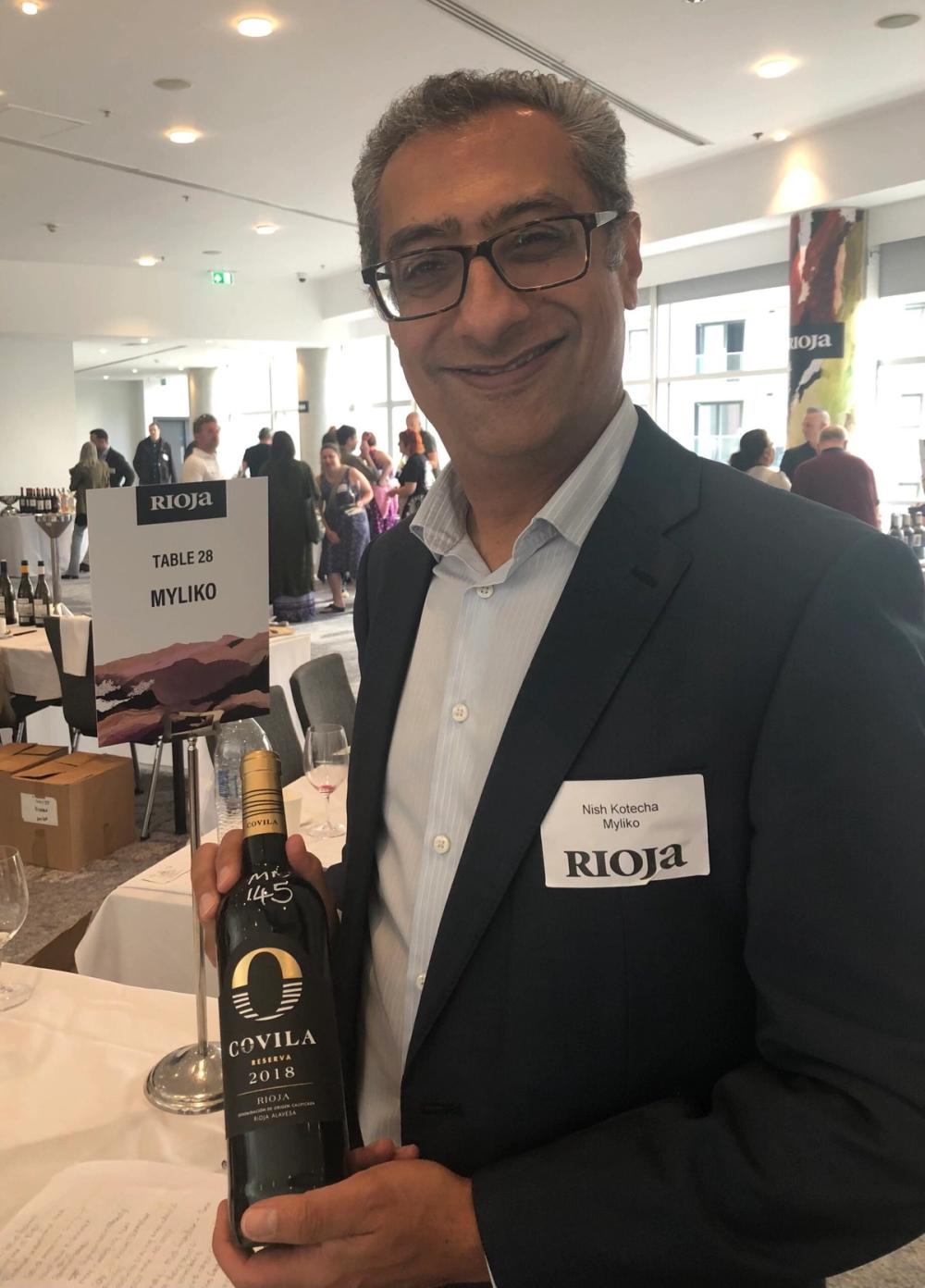
Less intimidation… more sales: Myliko’s Nish Kotecha
Nish Kotecha from family-owned importer Myliko Wines, has many clients in the Manchester area and also sells wines via wholesalers to the on-trade. He said it is “raising the bar for Rioja” but acknowledged that it takes time for anything new to ‘trickle down’ to the consumer.
“Communication is key and very often it is the sommelier, wine manager or independent wine merchant who needs to sell the story as well as the wine.” I ask, as Northerners are famed for their friendliness, if a more informal approach to presenting the wines might aid that process. Nish smiled “I don’t know about that, but customer choice is paramount – a lot of people love Rioja and if they feel less intimidated when buying it, that has to be a positive thing.”
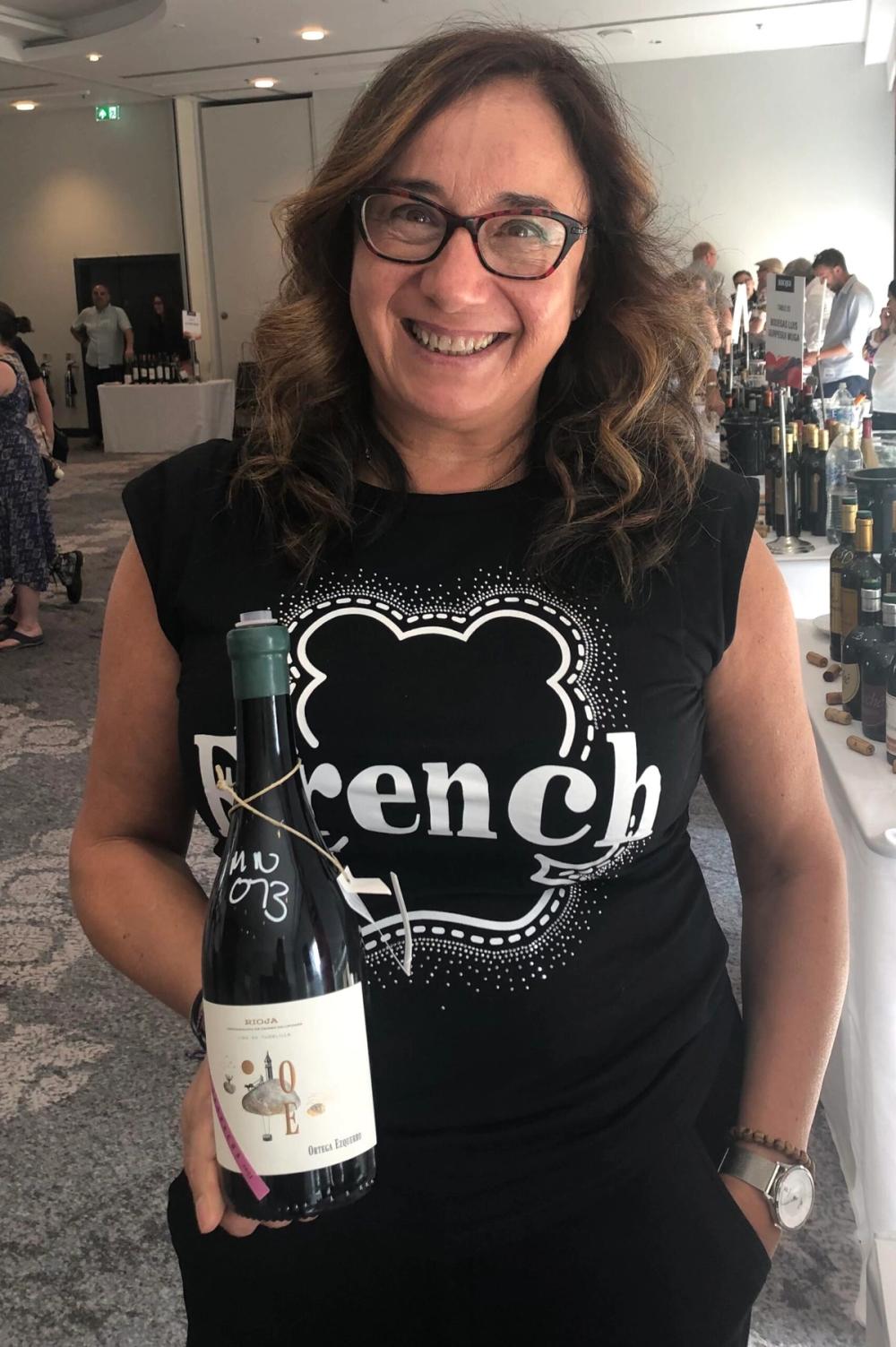
Terroir and region focus is a good thing: Ortega Ezquerro’s Ana Pelarda
Ana Pelarda, the export manager from Ortega Ezquerro is upbeat about the changes to the classification system. Her winery is in Tudelilla in the Rioja Oriental region (previously Rioja Baja) and their vineyard plot is very distinctive. Situated 545m above sea level and with an unique terroir (Ana shows me the photos of their vineyard scattered with large pebbles), she feels this allows them to tell the story behind the label. Holding up a bottle showing the village name, she says “It is a great idea to be focusing on the terroir and regions, rather than having a simple oak-ageing focus.” An excellent point and one which I heard a lot during the event.
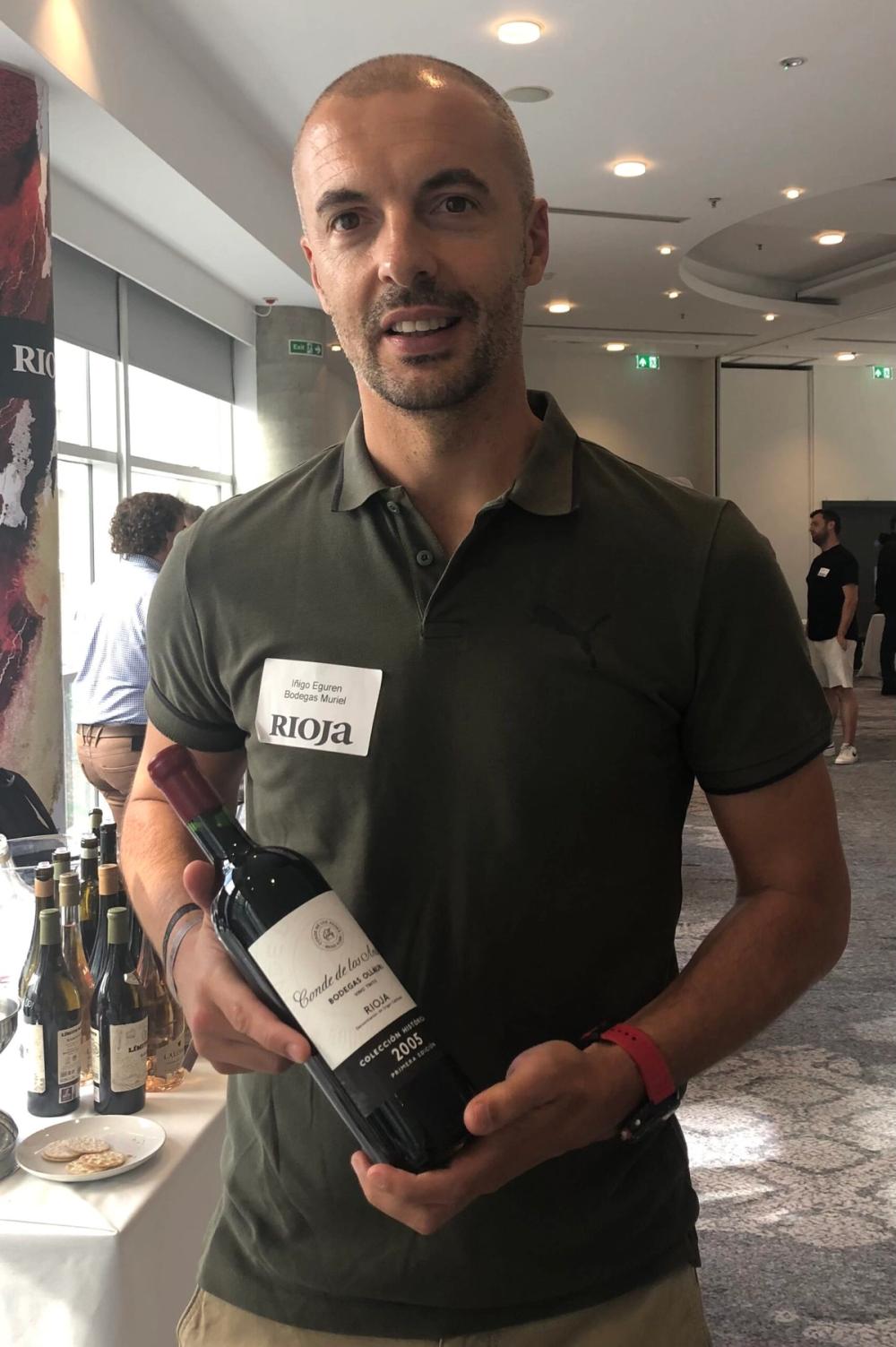
History and cultural heritage are more important: Conde de los Andes’ Iñigo Eguren
It was very interesting chatting to Iñigo Eguren, representing the Conde de los Andes brand as well as the wider Muriel Group, which acquired Bodega Ollauri in 2014. Iñigo is the sales and export manager for Muriel.
“For Conde de los Andes, we aren’t interested in the new classifications – it is all about history and cultural heritage.” Bodegas Ollauri has a winemaking history dating back centuries and famous underground cellars which sit below the village, containing a library of very old vintages. This heritage is what they are known for and it seems no new classification will enhance its reputation, for the moment at least. Conversely, Bodega Muriel has already introduced two village wines, “At Muriel, wines under the village name will demonstrate both quality and value” states Iñigo. Value is a word I’d not heard used all day.
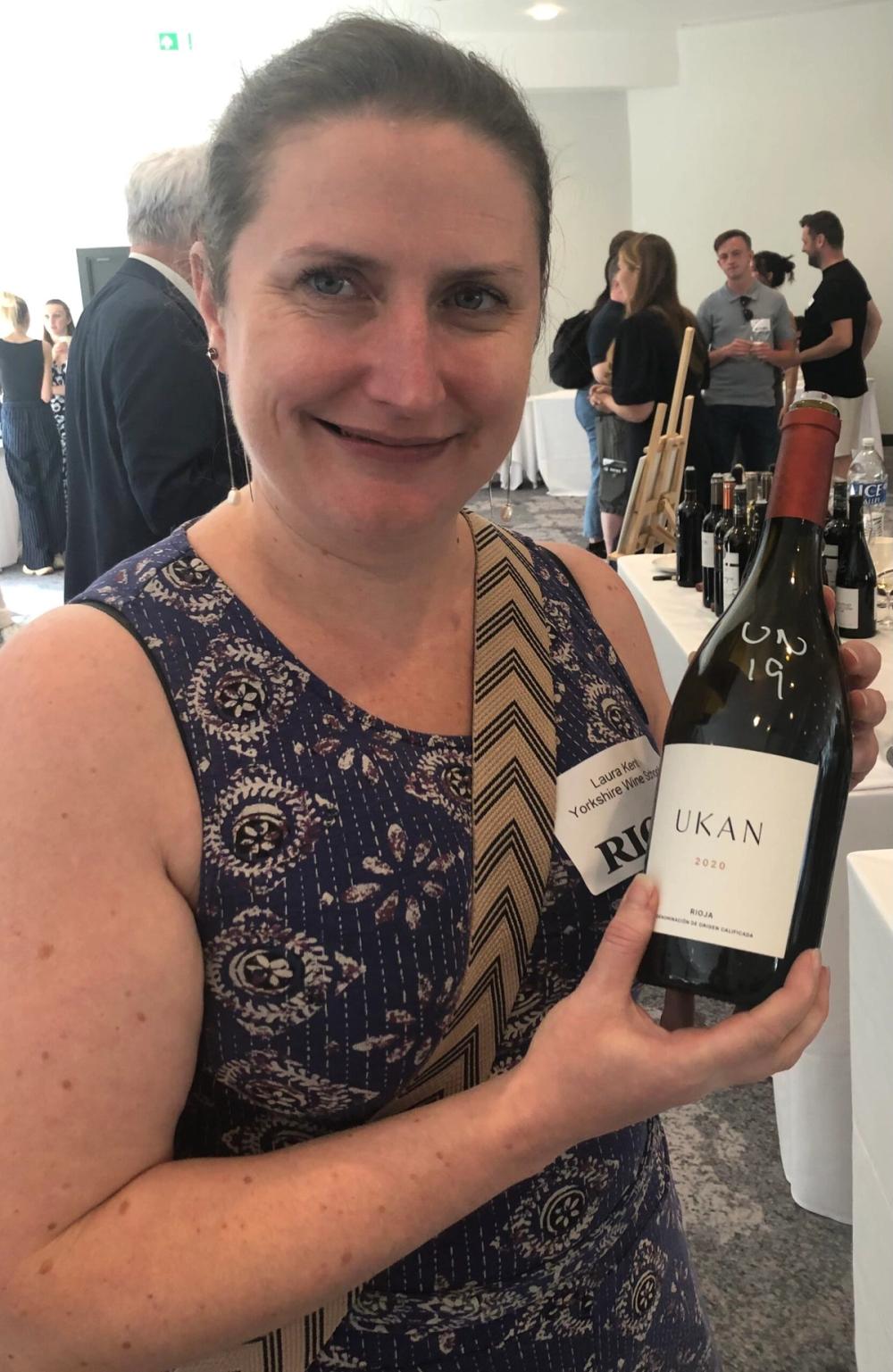
Brand building – a key to Rioja’s success: Yorkshire Wine School’s Laura Kent
I came across Laura Kent, owner of the Yorkshire Wine School and an official Rioja Wine Educator in the UK. I was keen to hear her perspective as she deals directly with the consumer. She agreed that taking the focus away from ageing (Crianza, Reserva, Gran Reserva etc) and being able to discuss ‘terroir driven wines’ was a good thing.
Having written a comprehensive article called Ageing Designations: Friend or Foe, which can be seen on the Consejo website, she knows a thing or two about the subject. Her point is that “Rioja is desperate to assert its place alongside the classic fine wines of Bourgogne and Barolo etc. And rightly so. People who are fascinated to learn more, or eager to expand their cellar will respond really positively to the new designations. However, she adds that the foundation of Rioja’s success is its brand building, and consumers like and understand brands.
And a word from the Rioja Consejo about the changes
Finally, I had an opportunity to chat to Iñigo Tapiador Larrañaga, the marketing and communications director from the Consejo Regulador DOCa Rioja. The ‘100kms of Diversity’ tour had taken him to London and Dublin before arriving in Manchester and he seemed very happy to be in the city. He explained that London is a saturated market, albeit a very sophisticated one, so it made sense to introduce the wines and the producers to different parts of the UK and spread the message to the wider trade.
“Rioja is well known for mastering the technique of blending and the winemakers are now confident to showcase the specific grape varieties” – Iñigo was referencing the Viñedo Singulares classification. “The ability to create super-premium wine is thanks to the diversity of the region and its grape varieties and this is very much a generational change.” He acknowledged that times are challenging for producers, in particular, people are drinking less wine, but he hoped these new moves would appeal to wine enthusiasts who are switching to more premium and quality-driven wines.
“Many younger drinkers are curious about the processes involved in winemaking, as well as the credentials of the winery – we hope this will appeal to them.” He explained that many smaller producers, which had previously supplied grapes to co-operatives, are now creating their own wines and are proud of their unique sites, soils and potentially innovative winemaking techniques.
Though this tasting was dominated by reds (for obvious reasons), he was keen to talk about the fantastic white wines made in the Rioja region.
“Varieties, such as Viura were not previously well regarded and have great potential with the right winemaking skills. In terms of diversity – they are a very important part of the story.” So perhaps we might see a white Rioja tasting in the future? Iñigo thought this was a real possibility.
Not all tastings live up to their title – it can be quite tricky to pitch it correctly and give sufficient interest and relevance to the trade – however I feel that this one did. Whilst largely positive about the ‘generational changes’, all were quite realistic about the education needed at all levels, from producer to consumer. The event itself, including an excellent seminar called ‘Beyond the Classics’ hosted by Sarah Jane Evans MW, is very much part of that education process and fantastic that it took part in a Northern city too.
- For more information about the Rioja DOCa, please contact the team at Phipps PR or mail rioja@thisisphipps.com.
